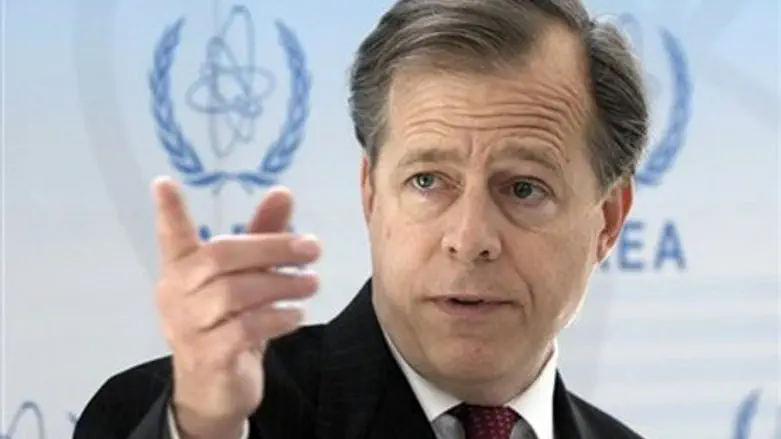
Western powers said on Wednesday there was growing evidence suggesting Iran was working to develop a nuclear missile and a recent "charm offensive" by Tehran failed to address those fears.
"Iran continues to casually dismiss the international community's concerns," Glyn Davies, the US envoy to the IAEA said.
"Stonewalling the IAEA, flouting UN Security Council obligations and mounting this most recent charm offensive do not reflect a good faith effort to resolve those concerns."
Davies added that a recent Iranian letter offering talks with the EU rather than US did not contain any new commitments by Iran to address international suspicions.
"I don't see from the standpoint of the work that is going on here anything new by way of an Iranian commitment to fully address the concerns that the international community has," Davies told reporters on the sidelines of the IAEA meeting.
In a hard-hitting joint statement, European Union heavyweights Britain, France and Germany said Iran's nuclear program was "advancing in an extremely concerning direction."
"The absence of a plausible economic or commercial rationale for so many of the nuclear activities now being carried out in Iran, and the growing body of evidence of a military dimension to these activities give grounds for grave concern about Iran's intentions," British Ambassador Simon Smith said on behalf of London, Berlin and Paris.
Iran denies Western accusations its program is aimed at developing a nuclear weapons capability.
Uranium enriched to a low level of fissile purity is suitable for running civilian nuclear power plants. If refined to a much higher degree, it can form the core of nuclear bombs.
Amano also said he planned to present soon the basis for those concerns in more detail to member states, a step that could provide stronger arguments for Western punitive measures.
